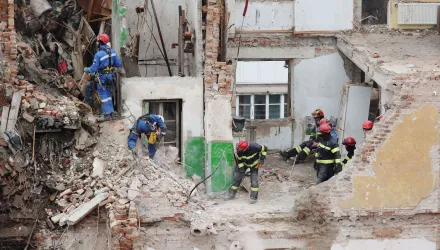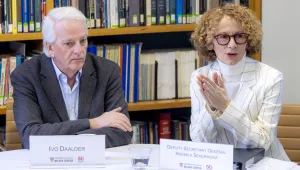Article
from
Belfer Center for Science and International Affairs, Harvard Kennedy School
A Bleak Economic Outlook
Russia’s Standing International Relations Have Been Damaged
Political-Military Developments: Cause for Concern?
Russian Domestic Opposition Remains Viable
Are Lessons Being Learned?
Up Next







